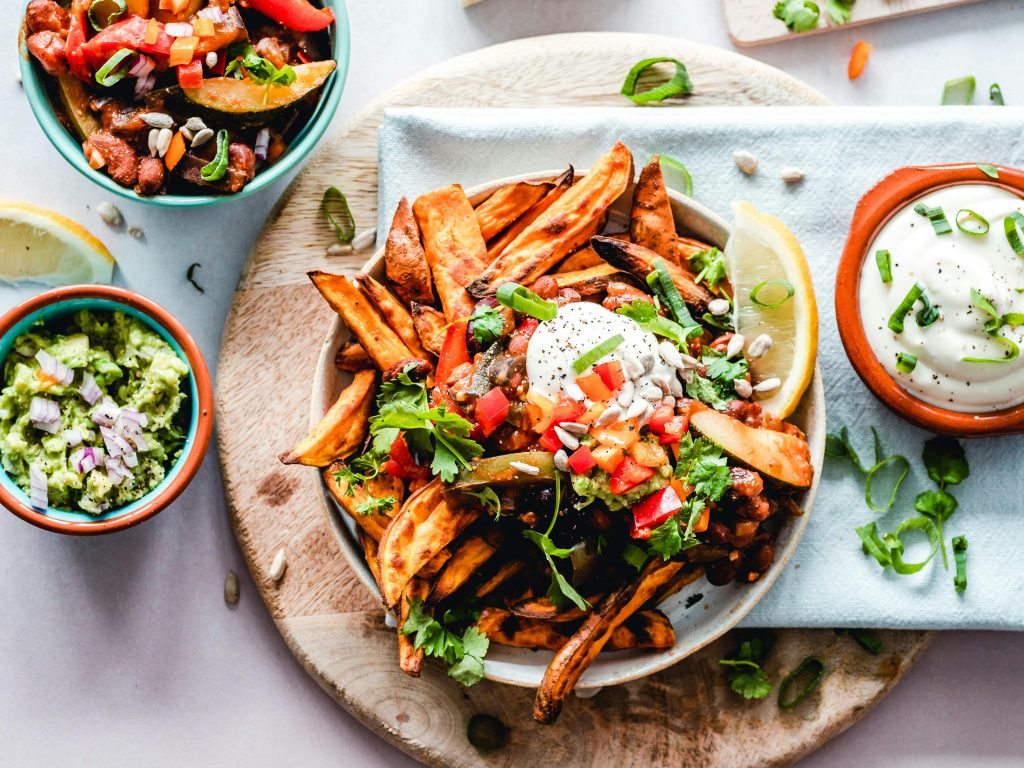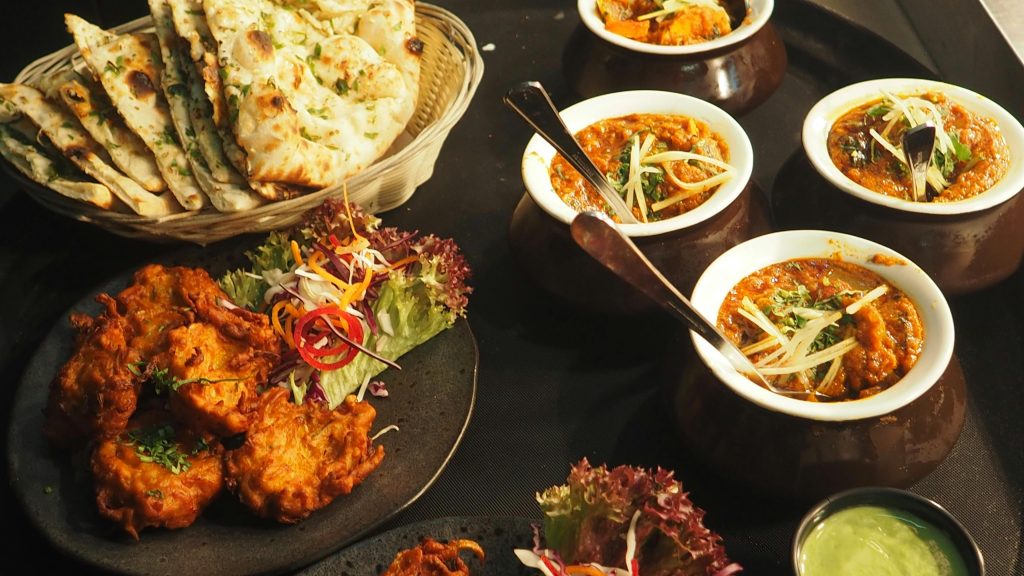Dealing with food can be complex, and sometimes our relationship with it can become a source of stress or unhealthy habits. It’s fantastic that you’re looking for healthier ways to cope! Let’s explore some expert-backed strategies in this blog post.
Nourishing Resilience
Our relationship with food is multifaceted, extending far beyond simple nourishment. Food can be intertwined with emotions, memories, social interactions, and even our sense of self. When life throws challenges our way, it’s not uncommon for food to become a coping mechanism. While a comforting meal might offer temporary solace, relying on food as a primary way to manage stress, sadness, or boredom can lead to a cycle of unhealthy habits and negative consequences for our physical and mental well-being.
The good news is that we can cultivate a healthier and more balanced relationship with food. By understanding the underlying reasons for emotional eating and developing alternative coping strategies, we can nourish our resilience and build a more sustainable sense of well-being.

Understanding the Roots of Emotional Eating
Before we delve into solutions, it’s crucial to understand why we might turn to food for comfort. Emotional eating isn’t about physical hunger; it’s driven by emotional needs. Here are some common triggers:
- Stress and Anxiety: The release of cortisol during stress can trigger cravings for high-fat, high-sugar “comfort foods.” Eating these foods can temporarily activate the brain’s reward system, providing a fleeting sense of relief.
- Sadness and Loneliness: Food can act as a source of comfort and distraction when feeling down or isolated. It can fill an emotional void, even if only momentarily.
- Boredom: When feeling unengaged or restless, eating can provide a sense of activity and sensory stimulation.
- Habit and Learned Behavior: Perhaps food was used as a reward or a source of comfort during childhood, creating ingrained patterns.
- Suppressed Emotions: Sometimes, we use food to avoid feeling or processing difficult emotions. Eating can act as a distraction or a way to “numb” uncomfortable feelings.
- Body Image Issues and Restrictive Dieting: Paradoxically, overly restrictive dieting can lead to intense cravings and binge eating as a response to deprivation. Negative feelings about one’s body can also trigger emotional eating.
Recognizing these triggers is the first step towards developing healthier coping mechanisms. By becoming more aware of the connection between our emotions and our eating habits, we can begin to make conscious choices rather than reacting impulsively.

Building a Toolkit of Healthier Coping Strategies
The key to breaking the cycle of emotional eating lies in developing a diverse toolkit of alternative coping mechanisms. These strategies should address the underlying emotional needs that food is currently trying to meet. Here are some evidence-based approaches:
1. Cultivating Emotional Awareness and Regulation
- Journaling: Regularly writing down your thoughts and feelings can help you identify patterns and triggers related to emotional eating. Note what you were feeling emotionally before, during, and after eating.
- Mindfulness and Meditation: Practicing mindfulness can increase your awareness of your body’s hunger and fullness cues, as well as your emotional state. Meditation can help you observe your emotions without judgment and develop a greater sense of calm.
- Identifying and Naming Emotions: Sometimes, we reach for food simply because we feel “bad” without identifying the specific emotion. Take a moment to name the feeling – is it anger, sadness, frustration, or anxiety? Once you can name it, you can begin to address it directly.
- Developing Emotional Regulation Skills: This involves learning healthy ways to manage and respond to difficult emotions. This might include deep breathing exercises, progressive muscle relaxation, or engaging in activities that bring you joy and relaxation.
2. Engaging in Stress-Reducing Activities
Since stress is a major trigger for emotional eating, incorporating stress-reducing activities into your routine is crucial.
- Exercise and Movement: Physical activity releases endorphins, which have mood-boosting effects. Find activities you enjoy, whether it’s walking, running, dancing, swimming, or yoga.
- Spending Time in Nature: Studies have shown that being in nature can reduce stress hormones and improve mood.
- Listening to Music: Soothing or uplifting music can have a powerful impact on your emotional state.
- Creative Outlets: Engaging in creative activities like painting, drawing, writing, or playing a musical instrument can be a healthy way to express and process emotions.
- Quality Sleep: Adequate sleep is essential for emotional regulation. Aim for 7-9 hours of quality sleep each night.

3. Strengthening Social Connections
Loneliness and lack of social support can contribute to emotional eating. Nurturing your relationships can provide a sense of belonging and support during challenging times.
- Connecting with Friends and Family: Make time for meaningful interactions with loved ones. Talk about your feelings and seek support when needed.
- Joining Social Groups or Clubs: Engaging in activities with like-minded individuals can combat feelings of isolation and provide a sense of community.
- Seeking Professional Support: A therapist or counselor can provide a safe space to explore the underlying emotional issues contributing to emotional eating and develop effective coping strategies.
4. Re-evaluating Your Relationship with Food
Shifting your perspective on food from a source of comfort to a source of nourishment is key.
- Practicing Mindful Eating: Pay attention to the taste, texture, and smell of your food. Eat slowly and without distractions. This can help you savor your meals and recognize when you’re truly full.
- Focusing on Balanced Nutrition: Prioritize whole, unprocessed foods that provide sustained energy and support your overall well-being.
- Challenging Food Rules and Restrictions: Rigid dietary rules can often backfire, leading to cravings and feelings of deprivation. Aim for a flexible and balanced approach to eating.
- Learning to Distinguish Between Physical and Emotional Hunger: Before eating, ask yourself if you’re truly physically hungry or if the urge to eat is driven by emotions.
- Honoring Your Hunger and Fullness Cues: Pay attention to your body’s natural signals and eat when you’re hungry and stop when you’re satisfied, not overly full.

5. Developing Distraction Techniques
When you feel the urge to eat emotionally, having a list of alternative activities can help you redirect your attention.
- Engaging in a Hobby: Pursue activities you enjoy, such as reading, gardening, knitting, or playing a game.
- Going for a Walk or Spending Time Outdoors: Physical activity and fresh air can be powerful mood boosters.
- Calling a Friend or Family Member: Connecting with someone can provide support and distraction.
- Listening to a Podcast or Audiobook: Engaging your mind with interesting content can shift your focus.
- Practicing a Relaxation Technique: Deep breathing, progressive muscle relaxation, or guided imagery can help calm your nervous system.
Building a Sustainable Path Forward
Developing healthier coping mechanisms is a journey, not a destination. Be patient and compassionate with yourself as you navigate this process. There will be times when you slip up, and that’s okay. The key is to learn from those experiences and keep moving forward.

Here are some additional tips for building a sustainable path forward:
- Start Small: Don’t try to overhaul everything at once. Choose one or two strategies to focus on initially and gradually incorporate more as you feel ready.
- Be Kind to Yourself: Avoid self-criticism or shame if you engage in emotional eating. Instead, focus on understanding the trigger and learning from the experience.
- Celebrate Your Progress: Acknowledge and appreciate the small steps you take towards building a healthier relationship with food.
- Seek Professional Guidance When Needed: If you’re struggling significantly with emotional eating or have concerns about your eating habits, don’t hesitate to reach out to a therapist, registered dietitian, or other qualified healthcare professional. They can provide personalized support and guidance.
- Check also this post on related topic: https://www.bariradka.com/2025/02/03/effective-coping-mechanisms/
By cultivating emotional awareness, developing stress-reducing activities, strengthening social connections, re-evaluating our relationship with food, and building a toolkit of distraction techniques, we can empower ourselves to cope with life’s challenges in healthier and more sustainable ways. Food can once again take its rightful place as a source of nourishment and enjoyment, rather than a primary means of managing our emotions. Embracing these strategies is an investment in our overall well-being and a step towards a more resilient and fulfilling life.